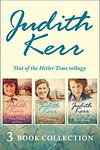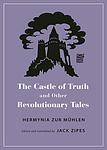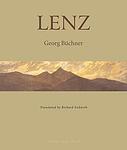The Greatest Italian, German "Drama" Books of All Time
Click to learn how this list is calculated.
This list represents a comprehensive and trusted collection of the greatest books. Developed through a specialized algorithm, it brings together 300 'best of' book lists to form a definitive guide to the world's most acclaimed books. For those interested in how these books are chosen, additional details can be found on the rankings page.
Genres
Drama is a genre of literature that typically deals with serious and emotional themes, often exploring the complexities of human relationships and the struggles individuals face in their lives. These books often feature intense character development and intricate plotlines, delving into the depths of human experience and the challenges of navigating the world around us. From family dramas to political intrigue, the drama genre encompasses a wide range of stories that aim to captivate readers with their raw and powerful storytelling.
Countries
Date Range
Reading Statistics
Click the button below to see how many of these books you've read!
Download
If you're interested in downloading this list as a CSV file for use in a spreadsheet application, you can easily do so by clicking the button below. Please note that to ensure a manageable file size and faster download, the CSV will include details for only the first 500 books.
Download-
1. Faust by Johann Wolfgang von Goethe
The book is a tragic play in two parts that tells the story of a scholarly man named Faust, who becomes dissatisfied with his life and makes a pact with the devil, Mephistopheles. In exchange for unlimited knowledge and worldly pleasures, Faust agrees to give his soul to Mephistopheles after death. The narrative explores themes of ambition, despair, love, and redemption, ultimately leading to Faust's salvation.
-
2. Steppenwolf by Hermann Hesse
The novel presents a poignant exploration of a man's struggle with his dual nature. The protagonist, a middle-aged man, finds himself torn between his humanistic, intellectual tendencies and his more primitive, wolf-like instincts. As he navigates his way through the surreal and sometimes hallucinatory world, he encounters various characters who challenge his views and push him towards self-discovery and transformation. The narrative delves into themes of alienation, the subconscious mind, and the search for meaning in life.
-
3. The Book Thief by Markus Zusak
Set in Nazi Germany during World War II, the novel follows the story of a young girl who finds solace in stealing books and sharing them with others. In the midst of the horrors of war, she forms a bond with a Jewish man her foster parents are hiding in their basement. The story is narrated by Death, offering a unique perspective on the atrocities and small acts of kindness during this period. The girl's love for books becomes a metaphor for resistance against the oppressive regime.
-
4. Six Characters in Search of an Author by Luigi Pirandello
In this metatheatrical play, six characters come to life and demand that a theater director tell their tragic story, which was left incomplete by their author. As the director and his actors interact with these characters, the boundaries between fiction and reality blur, leading to a philosophical exploration of the nature of human identity, the reliability of art, and the unreliability of perception. The characters' story, involving a complex web of familial relationships, adultery, and suicide, further complicates the narrative, challenging the audience's understanding of truth and illusion.
-
5. The Reader by Bernhard Schlink
"The Reader" is a poignant narrative centered around a young German boy's complex relationship with an older woman, who later turns out to be a former Auschwitz guard. Their relationship begins with her teaching him to read, but takes a drastic turn when she disappears, only to reemerge on trial for war crimes. The novel explores themes of guilt, shame, and redemption, as the boy, now a law student, grapples with his feelings for a woman he once loved, but whose past actions he cannot reconcile with.
-
6. My Brilliant Friend by Elena Ferrante
This novel tells the story of two friends, Elena and Lila, growing up in a poor neighborhood in Naples, Italy in the 1950s. Their intense, complicated friendship is marked by competition, mutual respect, and deep affection. As they navigate the challenges of adolescence, including family drama, academic struggles, and romantic entanglements, their bond is tested and transformed. The narrative explores themes of female friendship, social class, education, and the struggle for personal autonomy in a patriarchal society.
-
7. A Legacy by Sybille Bedford
"A Legacy" is a historical novel that captures the social and political turmoil of early 20th century Germany through the eyes of its protagonist. The story follows a young woman who hails from two distinct families, one being a wealthy Jewish family from Berlin and the other, an aristocratic Catholic family from rural Germany. The narrative provides a detailed account of the protagonist's life, her family's eccentricities, and the eventual downfall of her families amidst the backdrop of the First World War and the Weimar Republic.
-
8. The German Lesson by Siegfried Lenz
"The German Lesson" is a vivid exploration of the moral and cultural conflicts of World War II, set in a small German village. The story is narrated by a young boy who is tasked by his school teacher with an assignment to write an essay on "The Joys of Duty." As his father, a local police officer, is assigned the duty of preventing a popular local artist from painting, the boy finds himself torn between his father's rigid adherence to duty and his own growing appreciation for art and individual expression. The narrative grapples with themes of duty, obedience, and the power of art, providing a thoughtful examination of life under the Nazi regime.
-
9. The Time of Indifference by Alberto Moravia
This novel explores the dynamics of an upper-middle-class Italian family facing financial ruin. The story focuses on the emotional indifference and moral decay among family members, as they engage in affairs and manipulative behavior to secure their social status. As the family's fortunes dwindle, their lack of empathy and moral integrity becomes increasingly evident, offering a critique of bourgeois values and the corrosive effects of apathy and materialism.
-
10. Jacob the Liar by Jurek Becker
Set during the Holocaust in a Jewish ghetto in Poland, the novel revolves around a man named Jacob who fabricates the news of the Russian Army's advancement to uplift the spirits of his fellow prisoners. However, as his lies gain traction, they become a beacon of hope for the desperate people in the ghetto, leading to unforeseen consequences. The book explores themes of hope, despair, and the power of words, ultimately questioning the morality of lying for a greater good.
-
11. Mother Courage and Her Children by Bertolt Brecht
Set against the backdrop of the Thirty Years' War, the book tells the story of a canteen woman, Mother Courage, who pulls her cart with her three children across war-torn Europe. It explores her struggles and survival tactics as she tries to profit from the war while keeping her children safe. The narrative is a profound critique of war and its consequences, highlighting the human cost of conflict and the often futile search for prosperity and security in a chaotic world.
-
12. The Resistible Rise of Arturo Ui by Bertolt Brecht
"The Resistible Rise of Arturo Ui" is a satirical play that uses the rise of a fictional 1930s Chicago mobster, Arturo Ui, to parallel the rise of Adolf Hitler in Nazi Germany. The narrative is a critique of those who allowed Hitler to come to power, emphasizing that his rise was indeed resistible. The play explores themes of power, corruption, manipulation, and the dangers of complacency, showcasing the destructive potential of unchecked ambition and the failure of society to prevent the ascent of dangerous individuals.
-
13. Galileo by Bertolt Brecht
This play delves into the life of the renowned Italian scientist, Galileo Galilei, who challenged the church's belief in a geocentric universe. It explores his struggles against the Catholic Church, his recantation, and the consequences of his actions on his life and those around him. The narrative also examines the conflict between science and religion, the ethics of scientific discovery, and the price of truth.
-
14. Silk by Alessandro Baricco
"Silk" is a historical fiction novel that tells the story of a 19th-century French silkworm merchant who travels to Japan for business. During his travels, he becomes enamored with a mysterious woman. His unrequited love for her haunts him for the rest of his life, even as he returns to France and continues his life there. The novel explores themes of love, longing, and the profound impact that brief encounters can have on one's life.
-
15. Dog Years by Günter Grass
"Dog Years" is a novel set in Germany during the rise and fall of the Nazi regime and the aftermath of World War II. The story is told from the perspectives of three friends: Walter Matern, a fervent Nazi supporter; Eduard Amsel, a Jewish artist who creates scarecrows; and Harry Liebenau, who narrates their stories. The novel explores the complexities of friendship and identity amidst the backdrop of war, guilt, and redemption. It also delves into the psychological impact of the Holocaust on German society and the struggle to come to terms with its horrific past.
-
16. Bébo's Girl by Carlo Cassola
"Bébo's Girl" is a poignant tale set in the backdrop of World War II, focusing on the relationship between a young partisan, Bebo, and Mara, a simple and innocent country girl. Their love story unfolds amidst the grim realities of war, where Bebo's commitment to his cause often conflicts with the peaceful life he desires with Mara. The narrative explores themes of love, sacrifice, and the devastating impact of war on personal lives, ultimately leading to a tragic end.
-
17. Spring Awakening by Frank Wedekind
The book is a provocative and controversial play that delves into the tumultuous emotional landscape of adolescence. Set in late 19th-century Germany, it follows a group of teenagers as they navigate the complexities of sexuality, authority, and rebellion. The narrative exposes the repressive and hypocritical nature of the society that stifles the natural desires and questions of the young characters, leading to tragic consequences. Through its candid exploration of themes such as sexual awakening, suicide, abortion, and the critique of the educational system, the play challenges the audience to confront the damaging effects of ignorance and the urgent need for open communication and understanding between generations.
-
18. The Caucasian Chalk Circle by Bertolt Brecht
The play is a parable set in the Soviet Union that explores themes of justice, class struggle, and morality through the story of Grusha, a servant girl who risks her life to protect an abandoned child of noble birth during a time of revolution. As the child grows, a dispute over his custody arises, leading to a trial presided over by a wily, unconventional judge named Azdak. The trial's resolution hinges on the titular chalk circle test, which ultimately reveals the true nature of parental love and the importance of putting the needs of the child first. The narrative is a commentary on the social and political issues of the time, advocating for a society that prioritizes the welfare of its most vulnerable members.
-
19. Couples, Passersby by Botho Strauß
"Couples, Passersby" is a collection of short stories that explore the complexities of human relationships and the subtleties of everyday life. The stories are set in various locations, from urban landscapes to rural settings, and feature a wide range of characters, from couples to solitary individuals, each grappling with their own internal struggles and external circumstances. The author's evocative prose and keen observations of human behavior offer a poignant and insightful look at the human condition.
-
20. The Neapolitan Novels by Elena Ferrante
"The Neapolitan Novels" is a four-part series that explores the intricate and lifelong friendship between two women from Naples, Italy. The series spans several decades, beginning in the 1950s, and provides a detailed examination of the women's lives, struggles, and the societal pressures they face. The narrative delves into themes of identity, friendship, love, violence, and socio-political changes in post-war Italy. The series is known for its rich character development and vivid portrayal of female friendship.
-
21. The Good Person of Szechwan by Bertolt Brecht
"The Good Person of Szechwan" is a parable play that explores the difficulty of maintaining one's morals and goodness in a corrupt and exploitative world. The story revolves around a kind-hearted prostitute who struggles to be a good person under the harsh realities of life in Szechwan. When three gods visit the city in search of a good person, they find only her willing to help them. However, to survive, she must adopt a ruthless alter ego, leading to a complex exploration of morality, identity, and societal pressures.
-
22. When Hitler Stole Pink Rabbit by Judith Kerr
"When Hitler Stole Pink Rabbit" is a poignant and autobiographical novel that follows the life of a young Jewish girl named Anna and her family as they flee Germany in the 1930s to escape the rise of the Nazi regime. Through Anna's eyes, the book explores the challenges and hardships faced by refugees, as well as the loss of identity and sense of belonging. It is a touching story of resilience, courage, and the power of family bonds in the face of adversity.
-
23. Troubling Love by Elena Ferrante
This novel follows a woman who returns to Naples after her mother's mysterious death, determined to understand the enigmatic life her mother led. As she delves into her mother's past, she uncovers a web of secrets and discovers more about her own identity in the process. The narrative explores themes of mother-daughter relationships, identity, and the power of the past.
-
24. The Black Brothers by Lisa Tetzner
"The Black Brothers" is a captivating historical novel set in 19th-century Switzerland. It tells the story of four brothers, who, due to unfortunate circumstances, are forced to work as chimney sweeps. Through their perseverance and unity, they navigate the harsh realities of their profession and form a strong bond with each other. The book explores themes of resilience, friendship, and the fight for justice, making it a compelling and heartwarming read.
-
25. Lenz by Georg Buchner
"Lenz" is a novella that explores the mind of Jakob Michael Reinhold Lenz, a historical figure and playwright, during his descent into madness. The narrative presents a detailed account of Lenz's mental state as he struggles with depression, anxiety, and hallucinations while living in the mountains. It provides a profound look into the human psyche and the effects of isolation and mental illness.
Reading Statistics
Click the button below to see how many of these books you've read!
Download
If you're interested in downloading this list as a CSV file for use in a spreadsheet application, you can easily do so by clicking the button below. Please note that to ensure a manageable file size and faster download, the CSV will include details for only the first 500 books.
Download






















